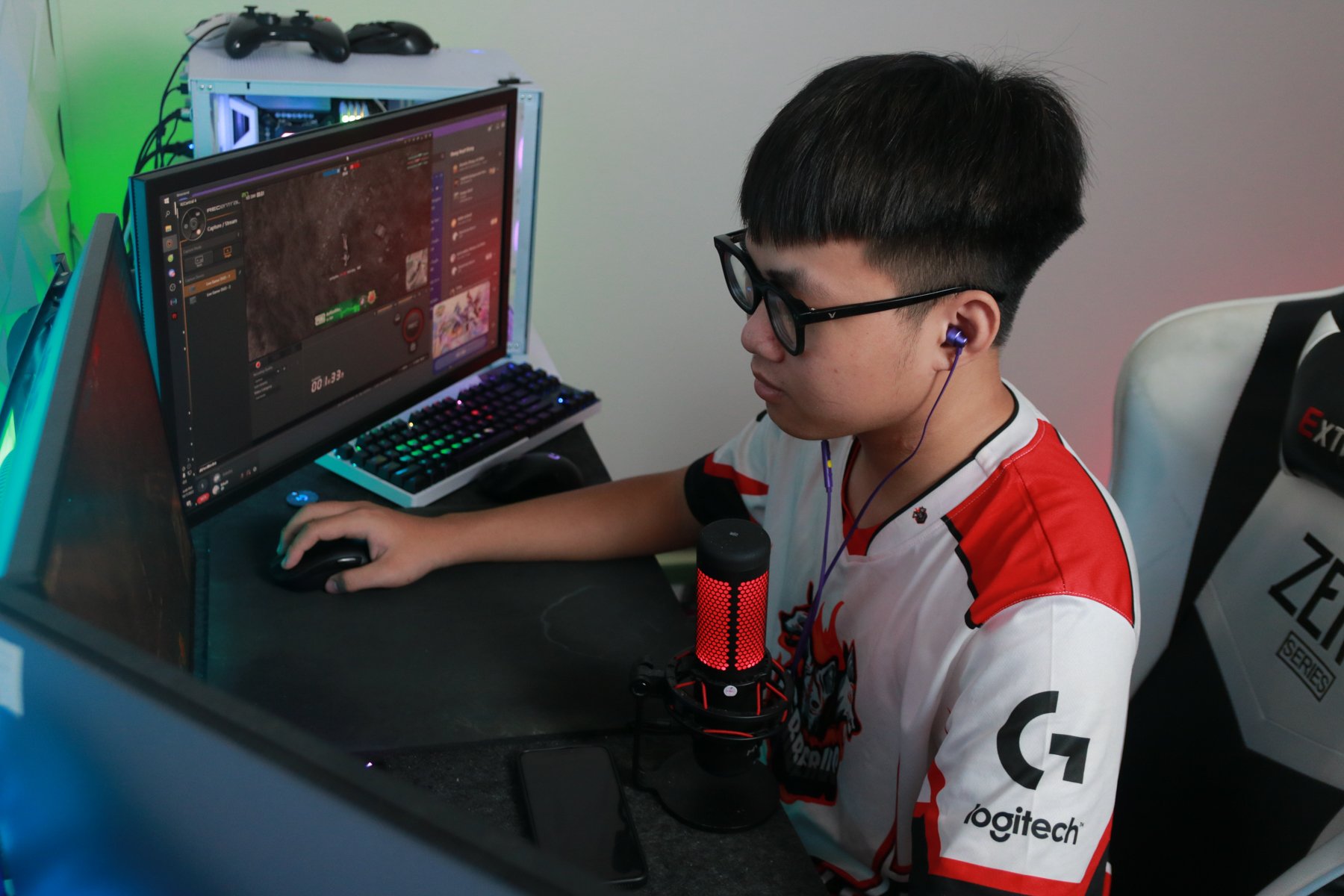
Many young esports players have proven that they can achieve financial stability and fame through professional gaming.
Remove the "lens" of the previous generation
A fan of the girl group BlackPink, TA, a student at the University of Social Sciences and Humanities in Ho Chi Minh City, recently spent a total of more than 5 million VND to attend a music event organized by this group in Hanoi, of which the ticket price was nearly 2 million VND. "This decision left my parents 'frozen', scolding me for being wasteful even though this was my own savings. My mother said it would be more useful to use that money to buy more books and clothes. But for me, this is a 'once in a lifetime' opportunity that cannot be missed, and the other things can always be bought," the female student confided.
Meanwhile, a female student living in District 1 who just graduated from Bui Thi Xuan High School (HCMC) shared that her parents "try very hard" to control her life, and that not being able to find common ground when sharing her interests and passions with her parents has become a "daily occurrence". "When problems arise, my mother talks to me a lot. There are gentle words, harsh words, physical attacks, and even cold wars, as long as I follow my mother's wishes," the female student confided.
"At first, I also felt very guilty. But later, I really wanted my mother to listen and respect my decision, instead of constantly nagging and criticizing me to listen to her. Gradually, every time I made a decision or had a problem, I no longer shared it with my mother but just went through it alone," this person added.
The above conflicts are not rare cases. However, parents should understand that in the digital age, the "times" of raising children are different from the past, according to Master Pham Nguyen Ngoc Nguyen, co-founder of Care Cube. Specifically, Ms. Nguyen believes that children today like to play games, "follow" idols (idol artists)... and see this as a spiritual resource, not only bringing joy but also adding motivation for children to overcome the pressure of studying, exams and difficulties in life.
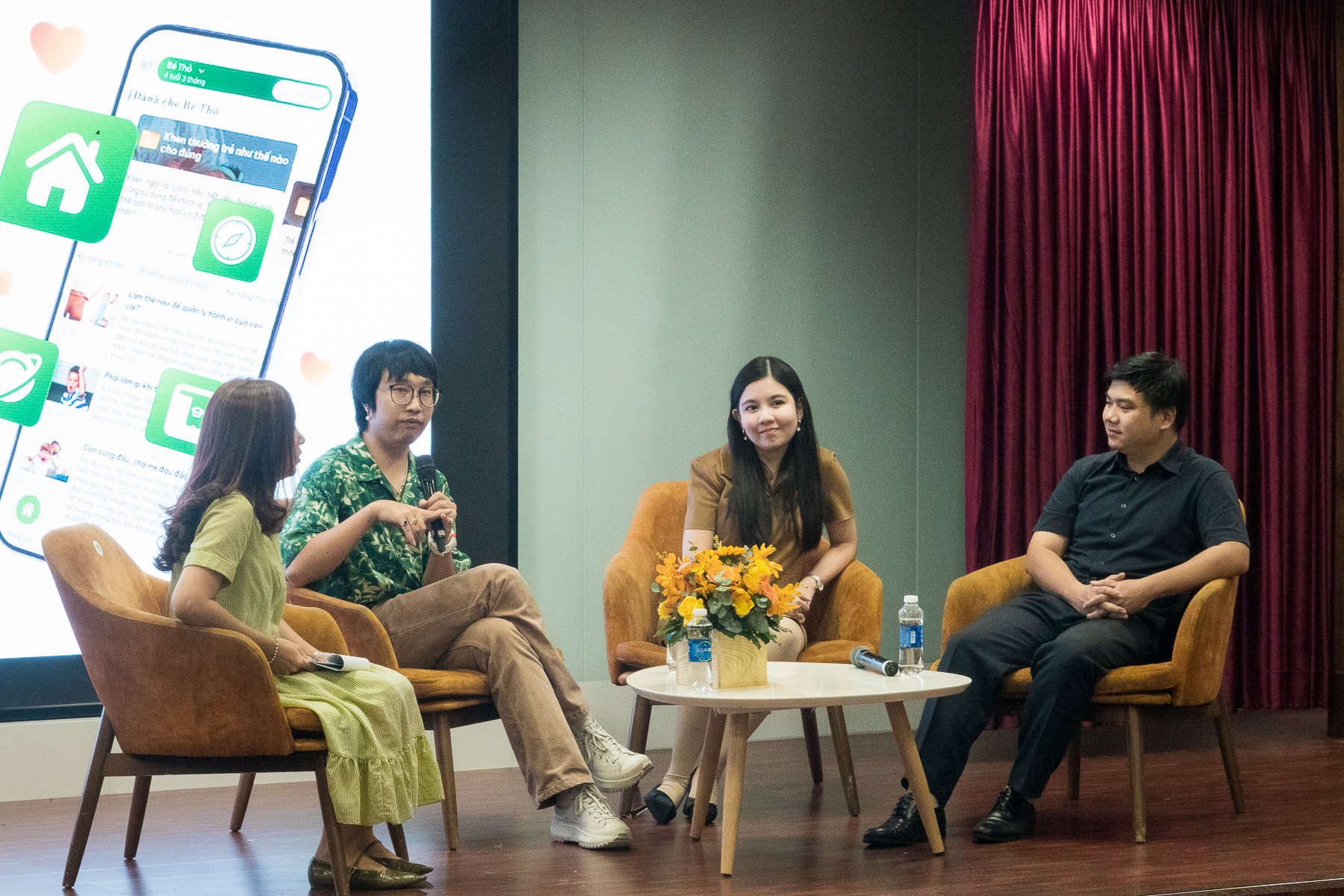
Master Nguyen Minh Thanh and Master Pham Nguyen Ngoc Nguyen (2nd, 3rd from left) at the event sharing ways to raise children
"Technology is the breath, the 'language' of young people that parents need to approach if they want to be on the same 'frequency' with their children. Let's remove the 'lens' of the previous generation, spend time understanding the games your children play, the idols they admire with all respect and love, because this will be the 'bridge' for parents to be able to dialogue, from there become friends with their children", Ms. Nguyen shared in the discussion "Learning to be proactive parents" held in August in Ho Chi Minh City.
However, psychologists also advise that in addition to being friends, parents need to set rules for their children to build their authority as parents. Parents also need to give their children guided autonomy in a way that is appropriate to the context. "Parenting should be established on two axes, with the vertical axis being limits and discipline and the horizontal axis being acceptance and love," Ms. Nguyen suggested.
Master Nguyen Minh Thanh, a PhD student at the Catholic University of Louvain (Belgium), believes that children today are much different from the past. Young children are now more open to sharing about human rights or the rights of minority groups with less voice in society. "With such a different context, the journey of raising children will not be the same as before," Thanh concluded.
According to Mr. Thanh, generational conflicts between children and parents mainly stem from one side violating the upper or lower limits of the other. Therefore, both sides need to determine what is the "acceptable" limit for each other and find a solution to lose and gain together, instead of being too extreme and prohibitive. "However, the dialogue needs to be appropriate for the child's age," the psychologist noted.
How to accompany your child
Talking to Thanh Nien Newspaper reporter, Ms. Pham Tran Kim Chi, a positive psychologist and founder of the My Child application, explained that accompanying your child means putting yourself in your child's age to understand the thoughts, desires, and standards of your child's generation. Thanks to that, parents can correctly understand their child's behavior and reactions, and have appropriate ways to talk to and guide their child.
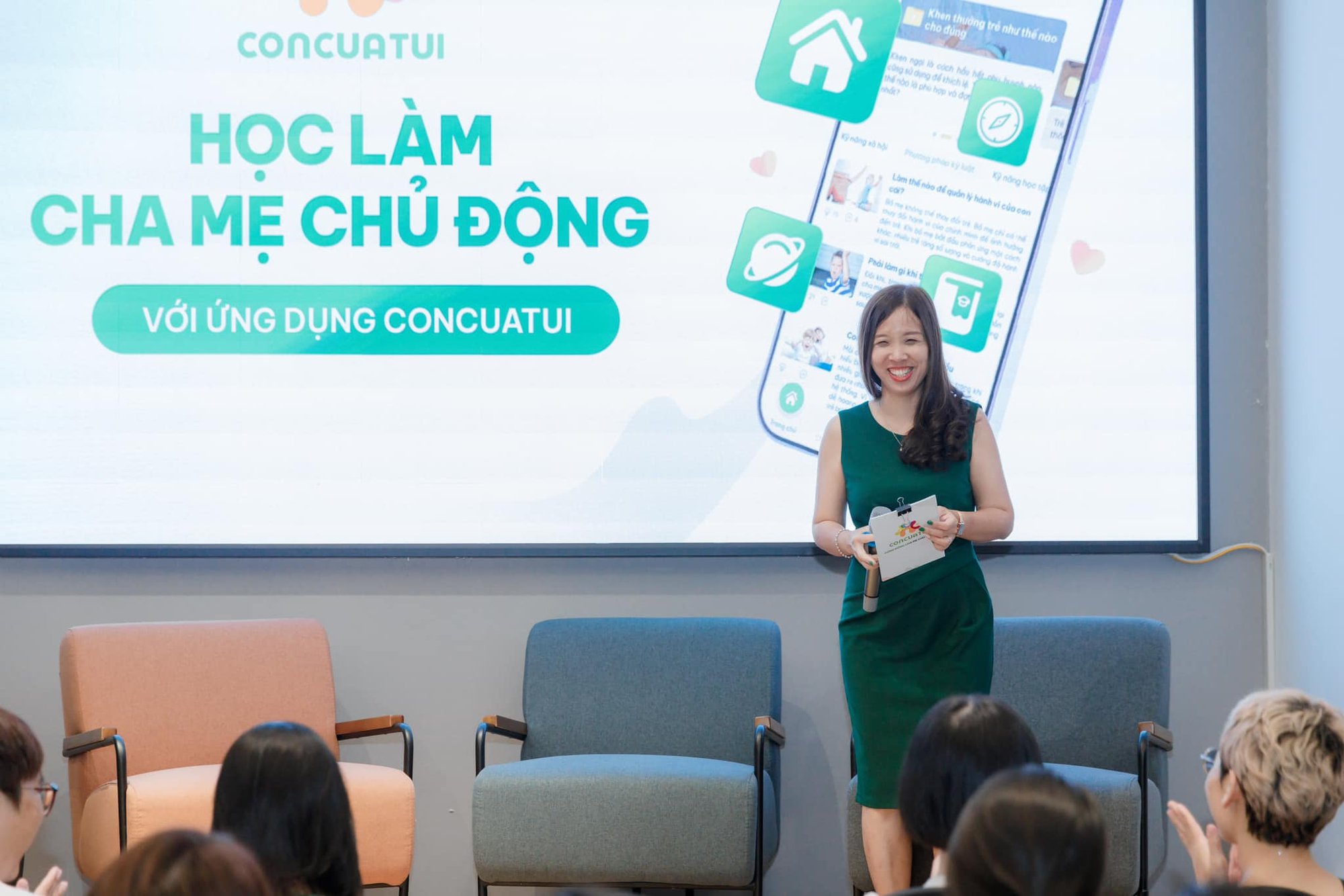
Ms. Pham Tran Kim Chi, positive psychology practitioner, founder of the My Child application
"Parents need to accompany their children as an adult friend, not as a 'peer' friend who only knows how to listen and understand without making demands or responsibilities. This adult friend knows how to support their children to become more mature and most importantly, slow down a step, do not use the thinking of your generation, and do not use the thinking of adults to judge right and wrong, good and bad on young children," Ms. Chi emphasized.
Accordingly, a 2019 study of 361 New Zealand teenagers aged 11 to 13 found that the factors that most strongly influence young people's happiness are joy, feeling safe and feeling useful. Many other studies have come to similar conclusions, such as children being happy when they are confident, competent... and have nothing to do with gratitude or living a planned life as parents often teach their children.
"Thus, to be fun and happy, teenagers need things that are different from what their parents think. If parents judge, 'Why do you play that game? It's just fun, but does it bring anything long-term?' or, 'What a waste, this is just a one-time thing, what's the point?', it means that parents are using adult intelligence to judge their children's thinking. And of course, they will not be accepted by their children," said Chi.
However, that does not mean that parents have to respect all their children's wishes and preferences. For example, if their children buy expensive things or go to expensive idol shows, parents must understand and accept that "it's too difficult for parents".

Don't judge, break stereotypes, set limits... are keywords to keep in mind for children to grow up happily, according to experts.
"Parents do not need to agree and support all their children's thoughts. Parents do not need to understand or feel passionate about a game or an idol like their children. If it is an area that parents are not interested in, that is also very normal. Children do not need their parents to like the same thing as them. What children need is for their parents to not judge them. Only then can they create companionship," the psychologist suggested.
"It should be understood that choosing to be friends in a permissive and non-interfering way is easy. Choosing to force children to do things the way parents do is also easy. But wanting to accompany is difficult. This needs to be learned," Ms. Chi added.
Story about idol fan
To help parents better understand how to accompany their children, Ms. Chi gives an example of a situation where a child wants to buy a very expensive item from an idol. Accordingly, in step 1, parents need to put themselves in their child's shoes to understand that this item is a joy, something that brings happiness to the child. "An idol item is not just a product, it is the child's whole story and emotions," Ms. Chi said.
Once you understand this, in step 2, parents need to ask themselves what they want to teach their children through this story, not judge them. If the lesson is to teach children to save money, then try giving them small, fixed amounts of money every week or month. After saving, how they spend it will be their business and they may realize that saving money to buy something else is more meaningful.
If the lesson is to teach children to recognize themselves and understand that everyone has something special, parents should try to find pictures and memorabilia from their childhood together to make a commemorative album or recreate those moments. Or, set goals or challenges with your children and find ways to complete them, Chi suggests.
"Most parents can set goals and encourage their children. Most children will also learn to appreciate themselves. What most parents can't do is stop judging, 'Why admire that person, it's not worth it', and what most children can't agree with is, 'Why not, it's worth being called an idol'.
In your child's experience, who is worthy or not worthy of admiration is not something parents should judge. Maybe your child's experience will change, like later on, you will look back and think that you shouldn't admire them like that. That is a process of cognitive transformation, the role of adulthood. And parents cannot force it to happen too soon," the psychologist advised.
Source link




![[Photo] Unique folk games at Chuong Village Festival](https://vstatic.vietnam.vn/vietnam/resource/IMAGE/2025/4/10/cff805a06fdd443b9474c017f98075a4)

![[Photo] Phuc Tho mulberry season – Sweet fruit from green agriculture](https://vstatic.vietnam.vn/vietnam/resource/IMAGE/2025/4/10/1710a51d63c84a5a92de1b9b4caaf3e5)
![[Photo] Prime Minister Pham Minh Chinh chairs meeting to discuss tax solutions for Vietnam's import and export goods](https://vstatic.vietnam.vn/vietnam/resource/IMAGE/2025/4/10/19b9ed81ca2940b79fb8a0b9ccef539a)






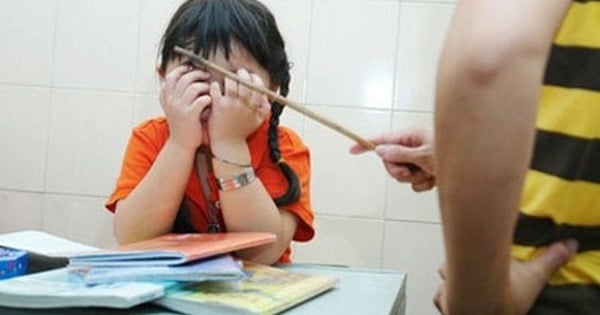

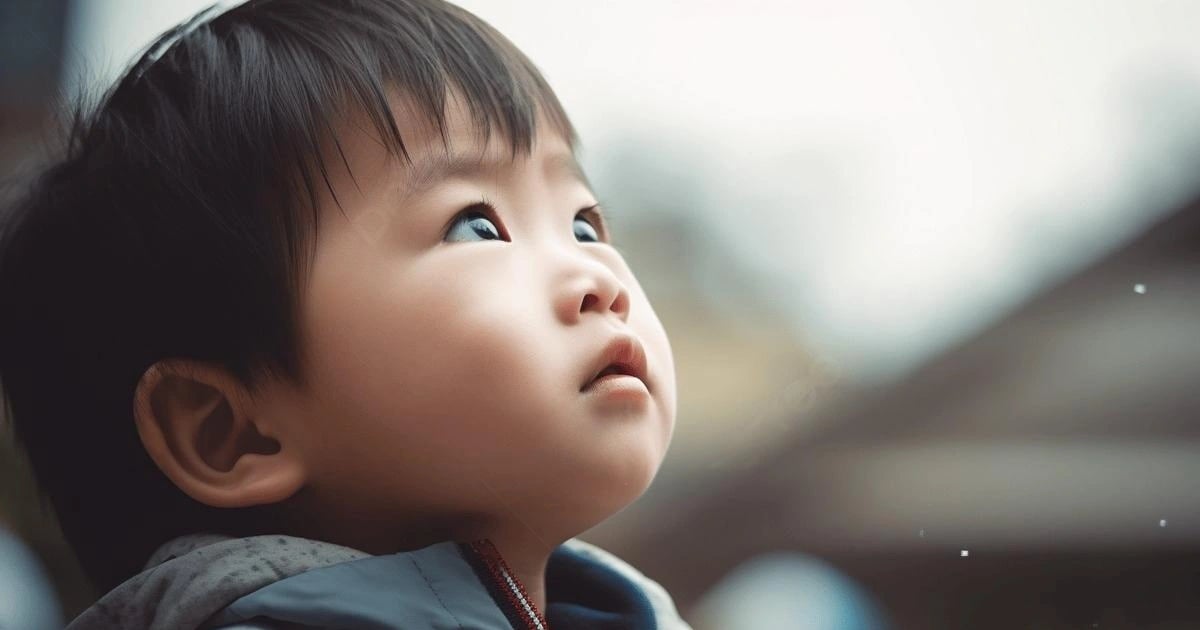
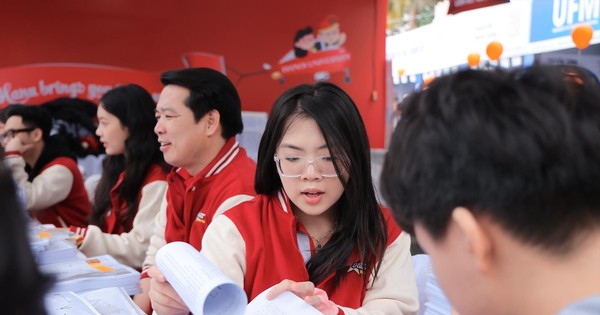

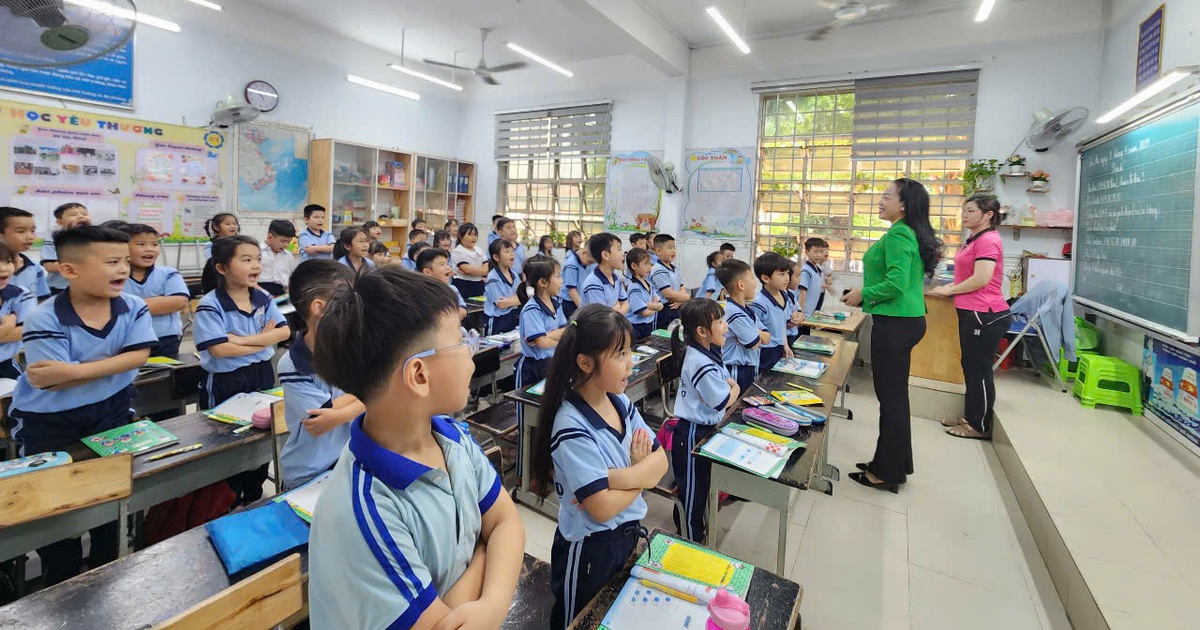
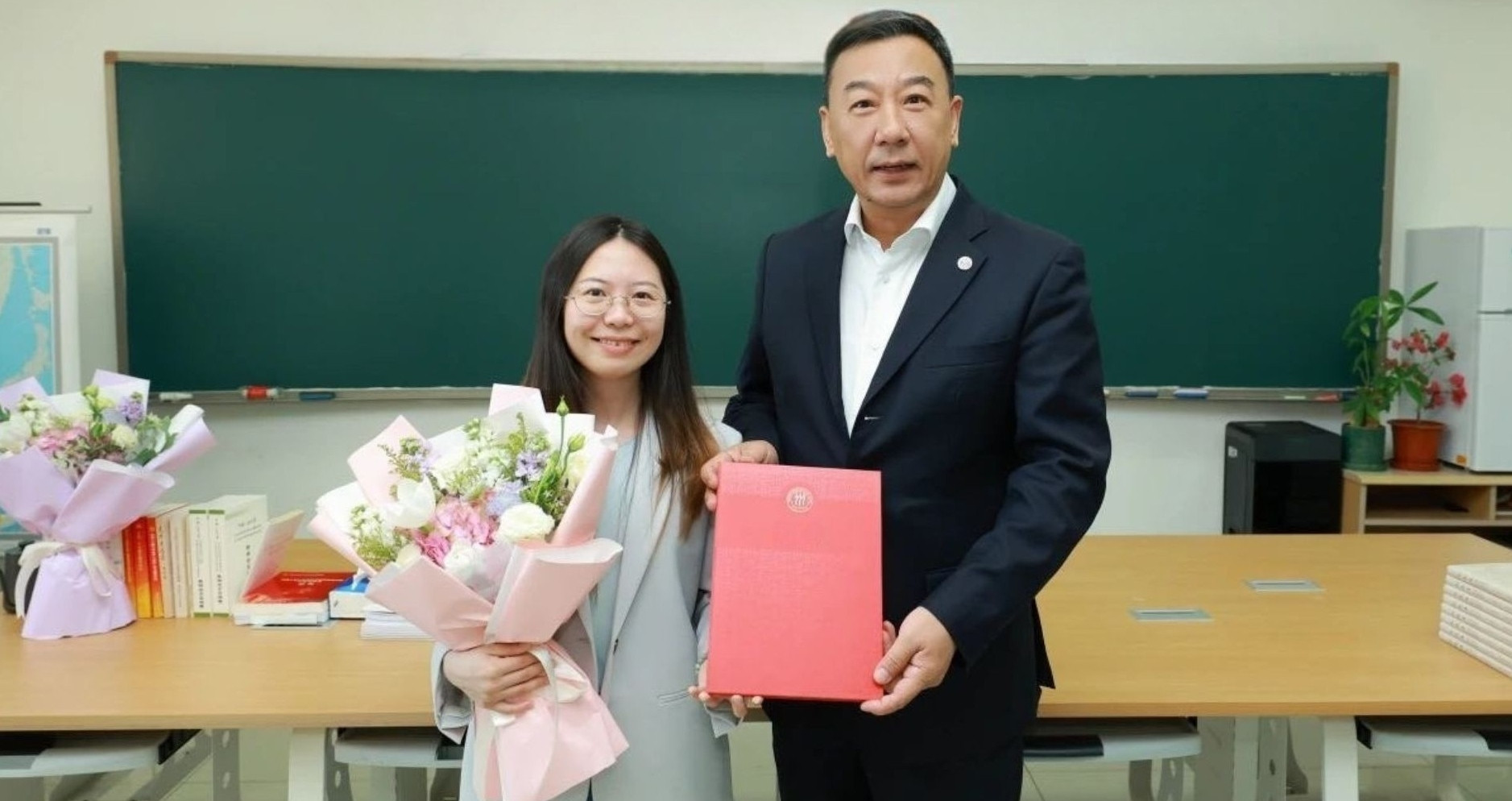



































































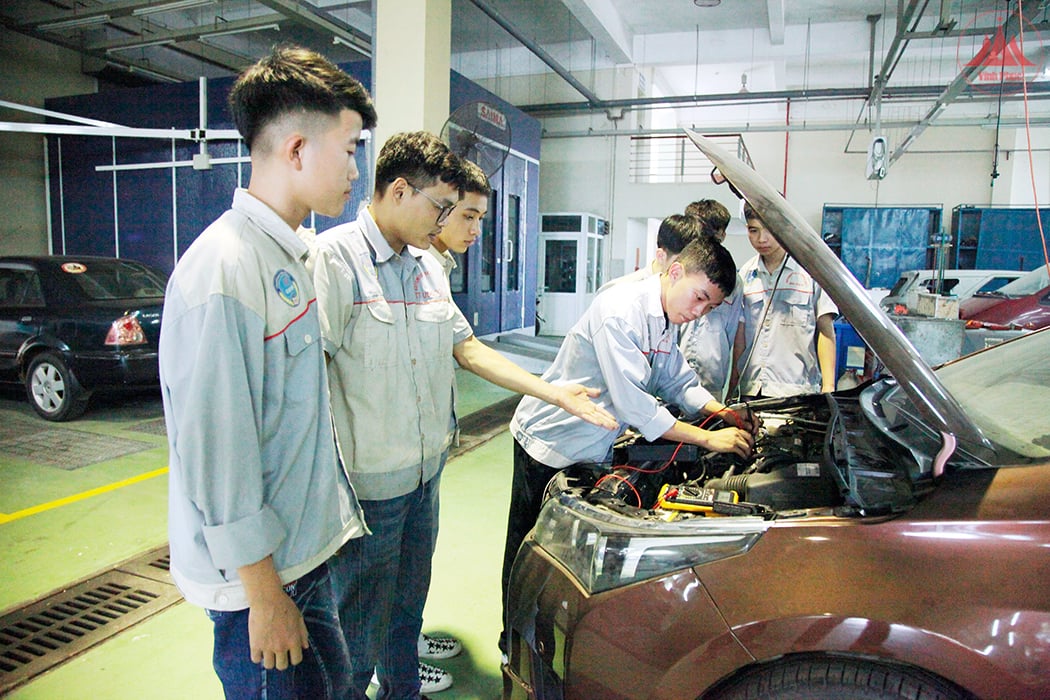










Comment (0)